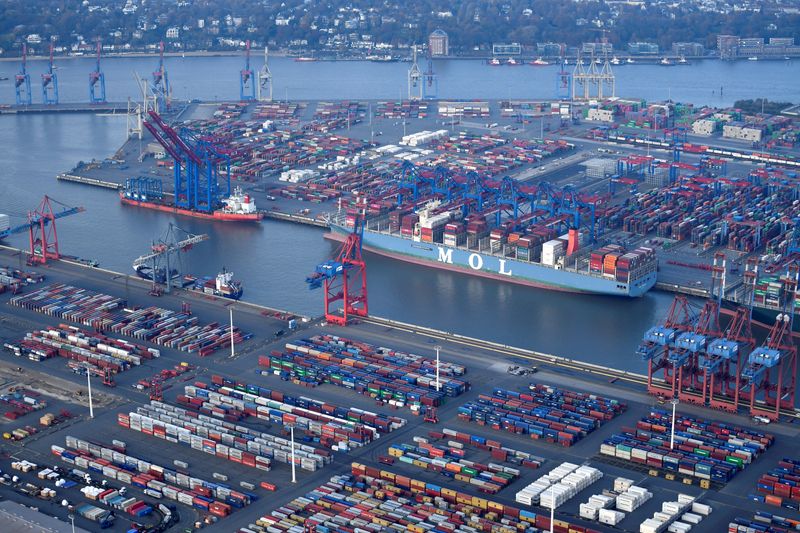By Maria Martinez
BERLIN (Reuters) - The German economy will continue to significantly underperform average growth in the euro zone until 2026, the forecasts of the European Commission showed on Friday.
The European Commission's Autumn Forecast projects GDP growth in 2024 at 0.8% in the euro area, while a 0.1% GDP contraction is expected in Germany, a downward revision from growth of 0.1% in the previous forecasts.
"High uncertainty has been weighing on consumption and investment, and the trade outlook has worsened as global demand for industrial goods weakened," the EU said in its report.
Germany, the world's third-largest economy, has lagged the European Union average since 2021 and is expected to shrink for the second year running in 2024, making it the worst performer among the Group of Seven rich democracies.
Going forward, domestic demand in Germany is set to pick up, driven by increases in real wages, according to the commission.
For next year, the European Commission expects a recovery, with 0.7% growth, cutting the spring forecast of a 1.0% expansion.
German growth will accelerate to 1.3% in 2026, but it will still be below the euro zone average of 1.6%.
Overall, domestic demand is forecast to become the main driver of economic growth again in 2025 and 2026. With an expected further easing of inflation, real household income is set to continue to recover and private consumption is expected to continue increasing, albeit at a slow pace, the commission said.

Harmonised German inflation declined to 2.4% in October 2024, down from a peak of 11.6% in October 2022, primarily due to falling energy prices. For 2024, inflation is projected to average 2.4%, according to the forecasts.
Inflation is then projected at 2.1% in 2025 and 1.9% in 2026, the EU said.

.jpg) 1 day ago
1
1 day ago
1
 English (US)
English (US)